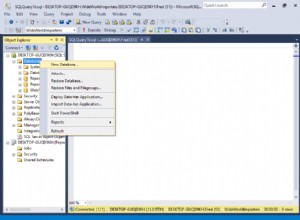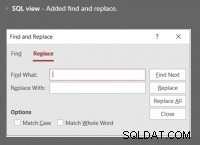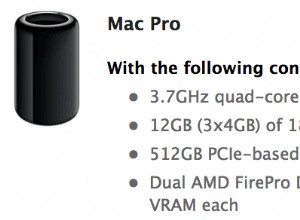OK, ich habe tatsächlich einen Weg gefunden, Doktrinenmigrationen zu verwenden.
Ich habe zuerst sichergestellt, dass meine Änderungen korrekt gesetzt wurden, indem ich ein Doktrin:Schema:Update --Force verwendet, den Profiler überprüft und dann zur letzten Datenbank zurückgekehrt bin.
Verwenden Sie also das Doktrinenmigrationspaket:
doctrine:migrations:diff
erstellt eine neue Migrationsklasse
Bearbeiten Sie die Klasse, um sie Ihren Bedürfnissen anzupassen. Meins war :
<?php
namespace Application\Migrations;
use AppBundle\Entity\Core\Media;
use AppBundle\Entity\FoodAnalytics\Recipe;
use Doctrine\DBAL\Migrations\AbstractMigration;
use Doctrine\DBAL\Schema\Schema;
use Symfony\Component\DependencyInjection\Container;
use Symfony\Component\DependencyInjection\ContainerAwareInterface;
use Symfony\Component\DependencyInjection\ContainerInterface;
/**
* Auto-generated Migration: Please modify to your needs!
*/
class Version20150525154902 extends AbstractMigration implements ContainerAwareInterface
{
private $customSQL = array();
/** @var Container */
private $container;
public function setContainer(ContainerInterface $container = null)
{
$this->container = $container;
}
/**
* @param Schema $schema
*/
public function preUp(Schema $schema)
{
$query = "SELECT id as mediaId, recipeId FROM `media` WHERE recipeId IS NOT NULL";
$data = $this->connection->prepare($query);
$data->execute();
foreach ($data as $row)
{
$mediaId = $row['mediaId'];
$recipeId = $row['recipeId'];
$this->customSQL[] = "($mediaId, $recipeId)";
}
}
/**
* @param Schema $schema
*/
public function up(Schema $schema)
{
// this up() migration is auto-generated, please modify it to your needs
$this->abortIf($this->connection->getDatabasePlatform()->getName() != 'mysql', 'Migration can only be executed safely on \'mysql\'.');
$this->addSql('CREATE TABLE media_recipes (mediaId INT UNSIGNED NOT NULL, recipeId INT UNSIGNED NOT NULL, INDEX IDX_C2BE64FC27D9F5AC (mediaId), INDEX IDX_C2BE64FC6DCBA54 (recipeId), PRIMARY KEY(mediaId, recipeId)) DEFAULT CHARACTER SET utf8 COLLATE utf8_unicode_ci ENGINE = InnoDB');
$this->addSql('ALTER TABLE media_recipes ADD CONSTRAINT FK_C2BE64FC27D9F5AC FOREIGN KEY (mediaId) REFERENCES media (id) ON DELETE CASCADE');
$this->addSql('ALTER TABLE media_recipes ADD CONSTRAINT FK_C2BE64FC6DCBA54 FOREIGN KEY (recipeId) REFERENCES Recipe (id) ON DELETE CASCADE');
$this->addSql('ALTER TABLE media DROP FOREIGN KEY FK_6A2CA10C6DCBA54');
$this->addSql('DROP INDEX IDX_6A2CA10C6DCBA54 ON media');
$this->addSql('ALTER TABLE media DROP recipeId');
$this->addSql('ALTER TABLE recipe ADD versionDetails VARCHAR(200) DEFAULT NULL');
}
public function postUp(Schema $schema)
{
$SQL = 'INSERT INTO media_recipes (mediaId, recipeId) VALUES ' . implode(', ', $this->customSQL);
$this->connection->executeQuery($SQL);
}
/**
* @param Schema $schema
*/
public function down(Schema $schema)
{
// this down() migration is auto-generated, please modify it to your needs
$this->abortIf($this->connection->getDatabasePlatform()->getName() != 'mysql', 'Migration can only be executed safely on \'mysql\'.');
$this->addSql('DROP TABLE media_recipes');
$this->addSql('ALTER TABLE media ADD recipeId INT UNSIGNED DEFAULT NULL');
$this->addSql('ALTER TABLE media ADD CONSTRAINT FK_6A2CA10C6DCBA54 FOREIGN KEY (recipeId) REFERENCES recipe (id) ON DELETE CASCADE');
$this->addSql('CREATE INDEX IDX_6A2CA10C6DCBA54 ON media (recipeId)');
}
}
Führen Sie dann das Update durch :
doctrine:migrations:migrate
und bestätigen y




